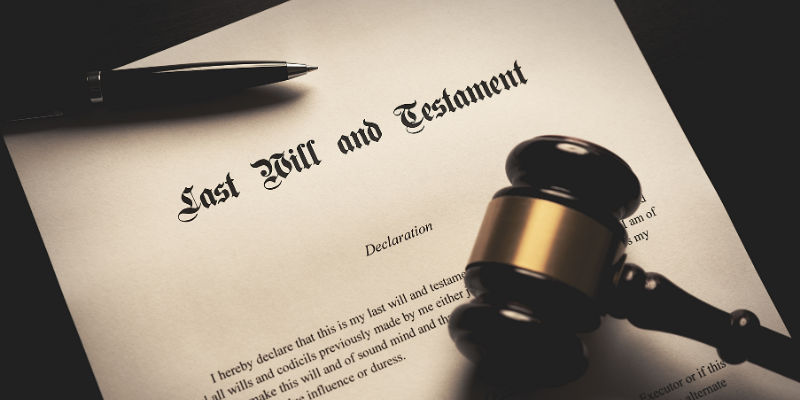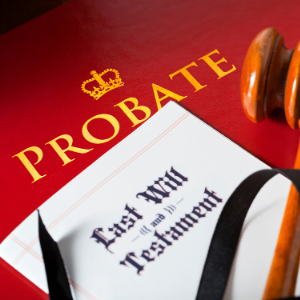
Understanding the Process of Selling an Inherited Property in Massachusetts
Selling an inherited house in Massachusetts entails several processes that demand meticulous attention to detail and knowledge of the local real estate market. Initially, it is critical to identify the legal status of the property by validating the probate process, which is required for transferring title from the deceased to the beneficiaries.
Working with an experienced probate attorney can be quite beneficial in navigating any legal obstacles. Once legal issues have been resolved, analyzing the property’s condition and obtaining a professional evaluation will assist in determining its fair market value.
It is also vital to evaluate any outstanding debts or liens on the property that must be resolved before it is listed for sale. Working with a real estate agent specializing in Massachusetts properties can provide valuable strategic insights into pricing, marketing, and negotiating offers.
Understanding tax ramifications is also crucial; engaging with a tax professional guarantees compliance with state and federal legislation governing capital gains and inheritance taxes. By considering these critical considerations, sellers can expedite the process and optimize their rewards when selling an inherited property in Massachusetts.
Navigating Probate When Selling an Inherited Home in Massachusetts

Navigating probate when selling an inherited house in Massachusetts can be difficult, but understanding the necessary steps can help the process go more smoothly. Probate is a legal process that confirms a deceased person’s will and manages the distribution of their assets, including real estate.
In Massachusetts, the process begins with a petition to the probate court in the county where the deceased lived. During this time, hiring a legal representative or executor to handle the estate is critical.
The executor oversees inventorying assets, paying outstanding obligations or taxes, and obtaining valuations for the inherited property. Understanding state-specific probate rules helps to avoid delays and guarantees compliance with restrictions, such as notifying creditors and heirs of probate procedures.
If there are several heirs, achieving an agreement on selling conditions is critical before marketing the property. An expert real estate agent versed in Massachusetts probate sales can offer helpful advice on pricing methods and marketing techniques for inherited properties.
Furthermore, understanding the potential tax implications of capital gains or estate taxes can help you make financially wise judgments throughout this transaction.
Assessing the Market Value of an Inherited Property in Massachusetts
Several important variables must be addressed when determining the market value of an inherited property in Massachusetts. Understanding local real estate market trends is critical, as they can dramatically impact property values.
Hiring a certified real estate appraiser who specializes in Massachusetts properties can give a thorough evaluation and verify that the valuation matches current market conditions. Furthermore, analyzing comparable property sales in the region might provide helpful information about what buyers are willing to spend for similar properties.
It is critical to account for distinguishing traits or historical significance that may affect the property’s value. Consulting with a real estate professional familiar with Massachusetts legislation and market dynamics can help determine the property’s fair market value.
Furthermore, understanding the tax ramifications of selling an inherited home, such as capital gains tax, is critical for financial planning and decision-making.
Tax Implications of Selling an Inherited House in Massachusetts
Selling an inherited home in Massachusetts requires negotiating a complex labyrinth of tax issues. One of the most pressing problems is the federal capital gains tax, which applies to the profit from selling the property.
Fortunately, Massachusetts applies a step-up in basis rule, which means that the property’s cost basis is adjusted to its fair market value at the time of succession. This modification can considerably lower capital gains taxes when you sell your home.
It’s also essential to know state-specific estate taxes, as Massachusetts levies an estate tax on homes valued beyond a particular amount. Understanding the local legislation is critical for properly controlling any liabilities.
Consulting with a skilled tax advisor or attorney can help you stay in compliance with federal and state tax rules. Furthermore, if you decide to sell the inherited property soon after inheriting it, you may face different tax consequences than if you keep it longer.
By thoroughly knowing these tax implications, you can make informed decisions that maximize your financial success while complying with all legal requirements for selling an inherited home in Massachusetts.
Tips and Strategies for Selling Your Inherited Home
When preparing an inherited home for sale in Massachusetts, it’s critical to concentrate on a few key measures to increase the property’s market appeal and ensure a smooth transaction. First, thoroughly inspect the house’s condition, identifying any necessary repairs and additions to increase its worth.
Consider hiring a professional inspector to find hidden flaws that could deter potential purchasers. Decluttering the area is also vital; removing personal possessions and unnecessary stuff can help create a neutral setting where purchasers might imagine themselves living.
Cleaning the property from top to bottom, including carpets, windows, and other surfaces, will significantly improve its appeal. Staging a home with stylish furnishings and decor can help to showcase its best characteristics and generate interest.
Maintain curb appeal by keeping landscaping in good condition, repainting exteriors as needed, and ensuring entryways are welcoming. Additionally, understanding Massachusetts-specific real estate disclosure requirements is critical to avoiding legal issues during the sale process.
Working with an experienced real estate agent who understands local market trends can provide significant insights and help position the home effectively in Massachusetts’ unique housing scene.
Maximizing Profit from Your Inheritance: Renovation vs As-Is Sale
An important consideration when selling an inherited home in Massachusetts is whether to invest in the property or sell it as-is. Both choices have pros and cons and can considerably impact your anticipated profit margins.
Making extra efforts on a home renovation can significantly increase the home’s value and market value, increase the number of potential buyers, and result in a higher settlement price. On the downside, a sale is contingent on a prior investment of time and money in old feature replacements or necessary repairs.
The opposite also holds—selling the house as-is has its own merits. The sale may appeal to investors or purchasers keen on renovation projects, although the sale price suffers relative to completely restored homes. The advantage is that the sale is expedited, as no modifications are needed.
Awareness of local market conditions is equally important; a local expert can conduct a comparative market analysis to determine if investing in renovations will add value in your area of Massachusetts.
Real estate agents who understand local trends can help tailor a deal that meets financial expectations while balancing tax and probate implications.
Hiring a Real Estate Agent for Selling Inherited Property in Massachusetts
Working with a Massachusetts real estate agent is crucial to selling an inherited home because they know the local real estate industry. A realtor can advise pricing the home for a fair and expedient sale.
They will assist you with Massachusetts probate and tax law. They also have long-standing relationships with home inspectors and contractors, which helps prepare the house for sale.
Achieving the best-selling price requires careful planning. Brokers also know how to market an inherited home’s positive aspects to local buyers.
Envisioning these processes improves selling outcomes while ensuring compliance with selling regulations maximizes the chances of selling the home for a reasonable price.
The Impact of Location on Selling an Inherited House in Massachusetts
Owning property in Cambridge or Boston is more economically advantageous for individuals than in other parts of the state. In Massachusetts, when an individual inherits real estate, they must sell it, so the property’s location becomes critical.
In contrast, the rural parts of Massachusetts are relatively stagnant in demand and experience reduced prices. Local real estate conditions impact selling, too. A strong market can result in competitive bids, while a weak market may compel strategic pricing adjustments to sell.
Local demographics, school districts, and tax brackets impact buyer engagement and sale prices. Sellers need Cambridge’s reputation for good schools, which inflates demand and increases buyers’ prices. This reputation also causes sellers to expect higher offers from buyers.
Moreover, the state has many municipalities that present diverse selling points, so sellers can market inherited homes to potential buyers through appealing landscapes and unique characteristics.
Common Problems Related To Selling An Inherited Home In Massachusetts
Massachusetts’s probate and tax procedures create challenges for selling an inherited home. Many people face difficulties with the extensive probate process and usually need legal help to untangle estate issues.
Apart from probate challenges, determining capital gain taxes is equally important, since they significantly reduce the profits from the sale. To determine tax obligations, heirs must estimate the property’s current fair market value and anticipated value at succession.
A delay in the sale can occur when heirs contest emotionally attached properties over the selling price. The property may also require substantial repairs or upgrades to compete in the Massachusetts real estate market.
These challenges must be addressed to comply with state regulations while achieving the best possible return on investment.
Coordinating Multiple Heirs in Selling Inherited Property
Cooperative effort is essential to streamline real estate sales in Massachusetts when there are multiple heirs to a property. Everyone involved must participate from the start, beginning with a gathering of all heirs. They need to be informed about the matters that concern them and what obstacles they face.
An executor or a delegate consolidating decisions for all heirs improves relations with the realtor, attorney, prospective purchasers, and other stakeholders. A working understanding of the bylaws regarding probate in Massachusetts is essential, as they offer a template for how a property would pass through an estate. This often affects how long a sale takes and can, therefore, influence timelines.
Massachusetts probate lawyers assist in delineating an heir’s responsibilities and entitlements in a sale. They also explore the ramifications of claiming capital gains tax early; capital gains tax may apply if the property’s inherited value is lower than the sale price.
Working with tax professionals offers solutions to these issues while adhering to state laws. This empowers heirs to collaborate to resolve disagreements, reinforcing state laws, thereby selling inherited property more efficiently.
Closing the Sale of Inherited Homes in Massachusetts
If you intend to sell a house inherited from a family member in Massachusetts, familiarize yourself with the closing steps. Guaranteeing the absence of liens and unresolved claims permits a clear title.
A probate requires an expert in real estate law specializing in inheriting estates and a probate attorney in Massachusetts. After resolving all probate matters, sellers must draft the deed, seller’s affidavit, prohibited documentation, and any other paperwork mandated by local regulations.
Real estate brokers help resolve disputes through negotiations, accelerate transaction closings, and streamline communications. Considering the inherited property loophole, it is also imperative for the seller to evaluate capital gains tax and its applicability to the sale proceeds.
Both parties must execute and sign final agreements, pay HOA and property taxes, and deposit all funds into escrow accounts during the closing phase. Awareness of these steps can mitigate the risk of legal issues during the selling process.
Understanding Emotional Dynamics in Family Home Sales
Emotions can overwhelm sellers when selling family homes in Massachusetts. This process often triggers warm nostalgia; thus, family ties require management.
These emotions need to be considered while making decisions regarding probate and taxation matters. Certain family members may have differing relationships with the home, complicating the decision to sell or retain it.
Acknowledging and appreciating all feelings fosters better communication. Understanding the psychology of expectations when selling a family asset can help you gain better control over it.
Striking a balance between emotional ties and financial considerations is vital when assessing fair market value and capital gains taxes. Emotions can help you address the legal and financial issues of selling an inherited home in Massachusetts while keeping family harmony intact.
How to Avoid Paying Capital Gains Tax on Inherited Property Near Massachusetts?

When selling an inherited home in Massachusetts, it is critical to consider alternatives for reducing or avoiding capital gains tax. One effective way is to use the step-up in basis provision, which converts the property’s cost basis to its market value at the time of succession.
This can drastically lower your taxable gain when you sell the property. Furthermore, consider keeping the property before selling it, as this may qualify for long-term capital gains tax rates, typically lower than short-term rates.
If you intend to reinvest the funds in another property, a 1031 exchange may allow you to defer taxes. Consulting with a tax professional familiar with Massachusetts real estate rules can provide specific advice and ensure compliance while improving your financial outcome when selling an inherited home in Massachusetts.
Do I Have to Pay Taxes on the Sale of a House I Inherited?
It is important to know the tax implications of an inherited property in Massachusetts. As an inheritor, you must pay specific taxes when selling the property.
The most important is the capital gains tax, which is charged on the profit from selling the inherited home. Nonetheless, it is essential to emphasize that in most cases, when you inherit a property, its cost basis is usually “stepped up” to the fair market value at the time of the transfer.
If you sell the home shortly after inheriting it, this step-up basis provision could save you a significant amount on capital gains tax. Also, there is no Massachusetts inheritance tax, although estate taxes may be assessed at the federal level depending on the estate’s total value.
From a legal vantage point, it is advisable to work with a real estate lawyer or a tax consultant to clarify the various deductions as per Massachusetts law and federal restrictions on inherited properties to ensure one stays within the brackets of the state and federal law. Having a clear picture of all these details helps deal seamlessly with the tax implications of the property sale in Massachusetts.
If managing these steps feels overwhelming, CNC Offers can help by buying your home as-is and handling the process efficiently. Whether in Quincy, New Bedford, or nearby, you can sell your Massachusetts house fast without the burden of complicated paperwork or repair costs. For those in the city, CNC Offers also works with homeowners who need to quickly sell inherited property, as they regularly buy houses for cash in Boston and nearby neighborhoods.
Do I Have to Pay Taxes on a House I Inherited in Massachusetts?
As with any asset, tax considerations are involved when inheriting a residential property in Massachusetts. Though there is no state inheritance tax in Massachusetts, selling an inherited property can be challenging.
As with any residential property, federal estate tax and capital gain tax should be considered. In the case of inheriting a house, the property’s fair market value at the time of the former owner’s death serves as its cost basis for calculating capital gains in the future.
If you sell the property for more than the stepped-up basis, you will have to pay capital gains tax. However, if you’re dealing with a large estate, you do need to be aware of the federal estate tax. Although federal threshold limits apply, many estates do fall below this threshold.
For these reasons, a tax advisor or attorney specializing in real estate should be consulted before selling an inherited house. This way, you have the most effective strategies for minimizing tax liabilities. Questions like how to best apply these legal tax duties and what steps are necessary to increase returns down the line become vital to a successful outcome.
How Much Tax Do You Pay If You Sell an Inherited House?

An individual should know the tax consequences that come with selling an inherited house in Massachusetts for one’s benefit and for state and federal compliance. A critical issue to keep in mind is the capital gains tax, which is levied on the difference between the selling price of the property and its sale price, which in this case is its stepped-up basis—the market value at the time of succession.
Also, consider that Massachusetts has a unique estate tax, which could affect how much you earn by selling the house you inherited. You may qualify for another exemption or deduction based on your relationship to the deceased and other factors surrounding the will.
Working with a knowledgeable Massachusetts estate law practitioner and a tax advisor can help with the Massachusetts estate law and greatly assist you in reducing the tax liability while navigating the complex legal processes. In this way, avoiding the tax penalties that are likely to arise when selling a house inherited is possible.
No matter where you are in Massachusetts, CNC Offers provides a reliable and stress-free way to sell your inherited house fast—offering fair cash deals, flexible closings, and expert guidance every step of the way. Contact us at (781) 205-9928 today to get your no-obligation offer!
Helpful Massachusetts Blog Articles
- Selling Your Home Amid Divorce In Massachusetts
- Expert Guide To Selling An Inherited House In Massachusetts
- Effective Strategies For Selling A Foreclosure Home In Massachusetts
- How To Sell A House Needing Repairs In Massachusetts
- How To Successfully Sell Your Massachusetts Home Without A Real Estate Agent
- Massachusetts Home Seller Closing Costs Without A Realtor

| INFORMATION | LEVIED | STATE OF MASSACHUSETTS | CASH | LUXURY HOME | DATA |
| USERS | COMPARATIVE MARKET ANALYSIS | BROKERS | REALTORS | REAL ESTATE BROKER | |
| LAWYER | WEB SITE | WEBSITES | VALUATION | PROPERTY VALUATION | PROPERTY TAX |
| PROPERTY TAXES | COURT | OPTIONS | MORTGAGES | CONSENT | ASSET |
| EMAIL ADDRESS | EMAIL ADDRESS | BUYERS | PROBATE COURT | COOKIES | TRACKING COOKIES |
| FORECLOSURE | FORECLOSURE SALE | FSBO | FOR SALE BY OWNER | CREDITORS | LENDER |
| THE UNITED STATES | THE UNITED STATES | TRUST | SALES | INVESTMENTS | FEES |
| COMPANY | TRANSFER TAX | TAX EXEMPTION | EXPENSES | JTWROS | RIGHT OF SURVIVORSHIP |
| JOINT TENANTS WITH RIGHT OF SURVIVORSHIP | REAL ESTATE INVESTOR | PERCENTAGE | MLS | MONEY | LOAN |
| LICENSE | TENANTS | INVESTOR | EXECUTOR | DEED | DEATH CERTIFICATE |
| COMMUNICATION | BUYER BEWARE | CAVEAT EMPTOR | CAVEATS | APPRAISER | ADVERTISERS |
| ADVERTISING | TRANSPARENCY | TITLE COMPANIES | PROPERTY OWNER | TECHNOLOGIES | STATISTICS |
| REAL ESTATE TRANSACTION | PRICING STRATEGY | PAINT | INVENTORY | INTERESTS | INSURANCE |
| FINANCIAL ADVISOR | DOCUMENT | DECEDENT | OUTLAY | CONTRACT | BLOG |
